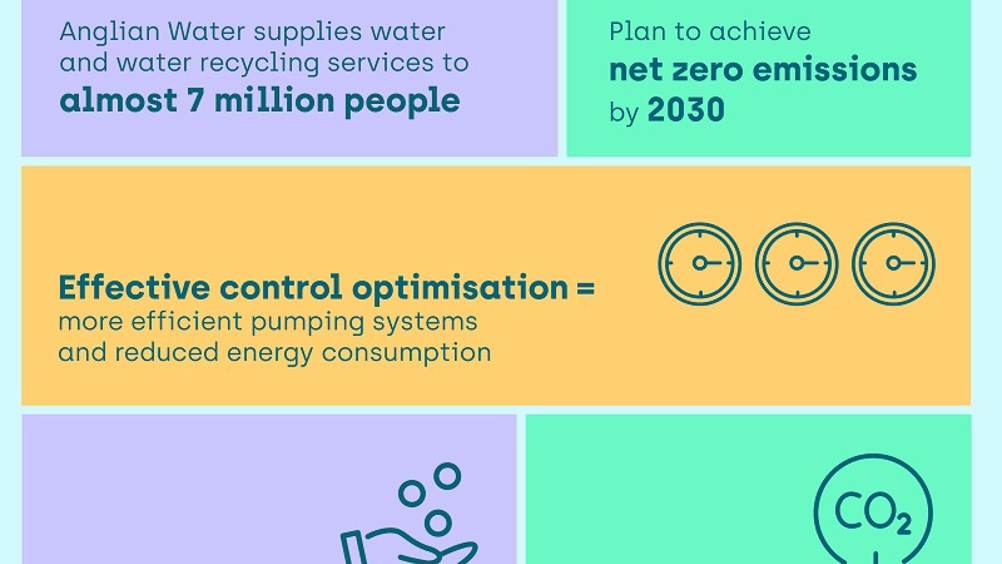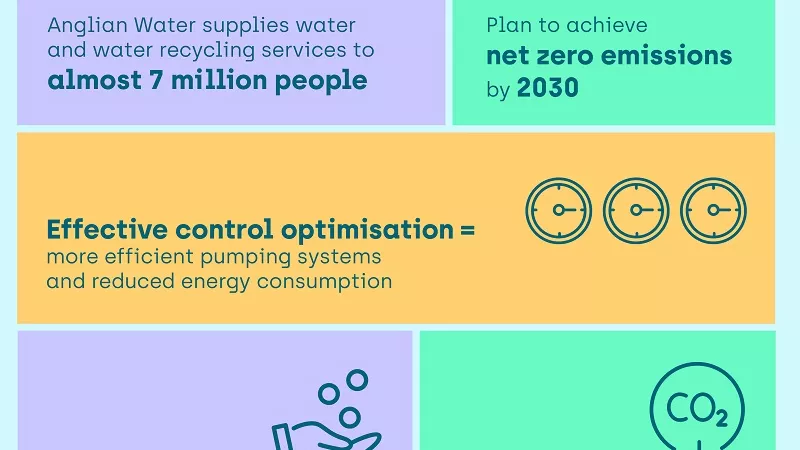BGEN, which specialises in multi-disciplinary engineering solutions, has achieved substantial carbon and cost savings for Anglian Water through control optimisation projects, reducing total emissions by 5,858 tonnes of CO2 and total operating costs by £3 million.

The projects are part of Anglian Water’s drive to cut its carbon emissions to net zero by 2030. – Image: Anglian Water/BGEN
On one project, the automation of one of Anglian Water’s largest sites, BGEN delivered energy savings in the region of 150,000 per annum alongside a significant reduction in out of hours working. BGEN was involved in the full lifecycle of the project from identifying and quantifying the opportunity, building the business case to secure the funding, through to implementing and measuring the success of the works.
The projects have been delivered as part of a framework agreement signed in late 2017 and are part of Anglian Water’s drive to cut its carbon emissions to net zero by 2030. Prior to the start of each project, BGEN analysed current energy usage versus optimal rates, and then made modifications to systems to realise energy reduction improvements. Most of the activity involved control modifications or re-designs and offered leakage and process benefits alongside a reduction in CO2. Savings were calculated using historical process data alongside actual bills and meter readings.
Jonathan Stimpson, senior optimisation engineer at Anglian Water, said: “Anglian Water and optimisation framework partners BGEN have formed a successful and truly collaborative approach to reducing OPEX, optimising the operation of assets and driving towards our net zero carbon targets.”
Andy O’Rourke, senior consultant at BGEN, said: “We are experts in both pumps and controls, a rare mix in the utilities sector, and consequently have helped Anglian Water achieve significant emission, energy and financial savings. We are currently scoping out a number of other projects and hope to provide further savings to the company in the future.”
Projects currently in delivery are set to realise further savings of 975 tonnes of embodied CO2, and circa £600,000 of savings per annum.


